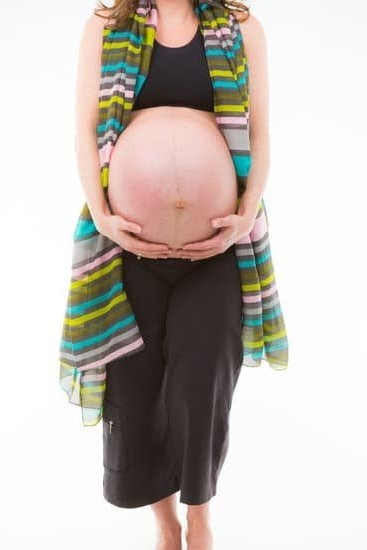Are you wondering, “is honey safe during pregnancy?” Many expectant mothers have concerns about the safety of consuming honey during pregnancy. In this article, we will explore the nutritional benefits of honey during pregnancy, potential health risks and concerns related to consuming honey while pregnant, and expert recommendations for making informed choices for a healthy pregnancy.
Pregnancy is a time when women pay close attention to their diet and nutrition. They want to ensure that they are consuming foods and beverages that are safe for both themselves and their growing baby. Honey is often debated among pregnant women due to its various health benefits and potential risks. Let’s delve into the topic, addressing common concerns and misconceptions surrounding honey consumption during pregnancy.
Throughout this article, we will provide evidence-based information on whether it is safe to consume honey while pregnant, as well as alternative sweeteners that can be considered if there are any concerns about honey consumption. It is important for expectant mothers to make informed decisions about their diet during pregnancy, and we aim to provide the necessary information to help them do so.
Women’s health experts recommend being cautious when it comes to certain foods and beverages during pregnancy, including honey, and understanding why these precautions are in place is essential for a healthy pregnancy.
Nutritional Benefits of Honey During Pregnancy
Honey is a natural sweetener that is packed with nutritional benefits, making it a popular choice for pregnant women. It is rich in vitamins, minerals, and antioxidants that can provide essential nutrients to support the health of both the mother and the developing baby. Some of the key nutrients found in honey include vitamin C, calcium, and iron, all of which are important for a healthy pregnancy.
One of the most significant benefits of honey during pregnancy is its ability to boost the immune system. This can help protect pregnant women from common illnesses and infections, which is especially important as the body’s immune system is naturally weakened during pregnancy. Additionally, honey has been known to soothe sore throats and alleviate coughs, providing relief from common pregnancy discomforts.
It is important to note that while honey offers several nutritional benefits during pregnancy, it should be consumed in moderation due to its high sugar content. Too much sugar can lead to excess weight gain and gestational diabetes, so it’s best to use honey sparingly as part of a balanced diet. Pregnant women should consult with their healthcare provider to determine how much honey is safe for them to consume based on their individual health needs.
| Nutrient | Amount Per 1 Tablespoon (21 Grams) |
|---|---|
| Calories | 64 |
| Total Fat | 0 g |
| Carbohydrates | 17 g |
| Sugars | 16 g |
Health Risks and Concerns Related to Consuming Honey During Pregnancy
Pregnancy can be a time when women are extra cautious about what they consume, as it can directly impact the health of the baby. When it comes to honey, there are some specific risks and concerns that pregnant women should be aware of. One major concern is the potential presence of botulism spores in honey, which can pose a serious risk to both the mother and the developing fetus.
Botulism spores are particularly concerning because they can cause a rare but serious illness known as infant botulism. This occurs when the spores grow and produce toxins in a baby’s intestines, leading to muscle weakness and breathing difficulties. While this is extremely rare, it is something that pregnant women need to consider when deciding whether or not to consume honey during pregnancy.
Another potential risk related to consuming honey during pregnancy is the possibility of allergic reactions. Although true honey allergies are rare, they can occur, and the consequences can be severe for both the mother and the baby. It’s important for pregnant women with known allergies or a family history of allergies to exercise caution when considering honey consumption.
Finally, there is also the concern about the sugar content in honey. While natural sugars are typically considered healthier than refined sugars, excessive sugar intake during pregnancy can lead to issues such as gestational diabetes and excessive weight gain. Pregnant women should therefore be mindful of their overall sugar consumption, including that from honey.
| Concern | Description |
|---|---|
| Botulism Spores | Potential risk due to rare but serious illness known as infant botulism |
| Allergic Reactions | Possible allergic reactions with rare but significant consequences for both mother and fetus |
| Sugar Content | Risk of excessive sugar intake leading to gestational diabetes and excessive weight gain |
Is Raw Honey Safe During Pregnancy?
During pregnancy, many women are concerned about what they can and cannot eat, including whether or not honey is safe to consume. Raw honey, in particular, raises some specific concerns that need to be addressed for expecting mothers.
Understanding the Concern
The concern over consuming raw honey during pregnancy stems from the potential presence of harmful bacteria known as Clostridium botulinum. This bacteria can be found in soil and dust and may contaminate nectar collected by bees. While the digestive systems of adults and older children can usually handle these bacteria, infants and unborn babies are more susceptible to its effects.
Nutritional Benefits of Honey During Pregnancy
Despite these concerns, it’s important to acknowledge the nutritional benefits of honey during pregnancy. Honey is a natural source of vitamins, minerals, and antioxidants that can provide much-needed nutrition for both the mother and her growing baby. It also has antibacterial properties that can help support the immune system during this vulnerable time.
Expert Recommendations
When it comes to raw honey during pregnancy, most experts recommend exercising caution. The Centers for Disease Control and Prevention (CDC) advises against feeding honey to infants under one year old due to the risk of infant botulism.
While there is no definitive evidence on the safety of consuming raw honey during pregnancy, it is generally best to err on the side of caution and opt for pasteurized honey instead. Additionally, seeking guidance from a healthcare provider can help expecting mothers make informed decisions about their diet during pregnancy.
Safe Ways to Consume Honey During Pregnancy
Adding Honey to Hot Drinks
During pregnancy, many women experience throat irritation or cough due to hormonal changes. Adding a teaspoon of honey to warm water or herbal teas can provide relief from these symptoms. However, it is important to ensure that the hot drink is not too hot, as high temperatures can destroy the beneficial enzymes and antioxidants in honey.
Using Honey as a Natural Sweetener
Instead of using refined sugar, pregnant women can use honey as a natural sweetener in their meals and snacks. Whether it’s drizzling it over yogurt, oatmeal, or whole grain toast, using moderate amounts of honey can add sweetness and nutritional benefits to your diet.
As a Topping for Fruits and Desserts
Fruits are an essential part of a healthy pregnancy diet due to their high content of vitamins, minerals, and fiber. Drizzling some honey over fruit salads or pairing them with Greek yogurt can make for a delicious and nutritious snack. Similarly, using honey as a topping for homemade desserts like baked fruit crisps or yogurt parfaits is another safe way to consume honey during pregnancy.
Incorporating these safe ways of consuming honey during pregnancy can provide expecting mothers with both nutritional benefits and satisfaction while protecting themselves and their babies from potential health risks associated with this natural sweetener.
Alternative Sweeteners to Consider During Pregnancy
Alternative sweeteners can be a good option for pregnant women who are concerned about consuming honey during pregnancy. While honey is generally considered safe for pregnant women, some may prefer to avoid it due to the risk of certain bacteria and potential allergic reactions. Here are some alternative sweeteners to consider during pregnancy:
- Stevia: Stevia is a natural sweetener derived from the leaves of the stevia plant. It is much sweeter than sugar and has no calories, making it a popular choice for those looking to manage their weight during pregnancy.
- Maple syrup: Pure maple syrup is another natural sweetener that can be used in place of honey. It contains vitamins and minerals like zinc and manganese, which can be beneficial during pregnancy.
- Date paste: Date paste is made by blending dates with water to create a sweet paste that can be used in baking and cooking. Dates are high in fiber and nutrients, making them a healthy option for sweetening foods during pregnancy.
It’s important to note that artificial sweeteners should be used sparingly during pregnancy, as some may have potential risks for the developing fetus. Pregnant women should consult with their healthcare provider before using any alternative sweeteners to ensure they are safe for consumption during pregnancy.
In addition to these alternatives, pregnant women can also consider using small amounts of traditional sugars like brown sugar or cane sugar in moderation. As always, it’s best to focus on consuming a variety of nutrient-dense foods and keeping added sugar intake within recommended limits for a healthy pregnancy.
Expert Recommendations and Guidelines for Consuming Honey During Pregnancy
When it comes to consuming honey during pregnancy, it is important to consider expert recommendations and guidelines to ensure the safety of both the mother and the baby. Here are some important recommendations and guidelines to keep in mind:
- Consult with your healthcare provider: Before adding honey to your diet during pregnancy, it is crucial to consult with your healthcare provider. They can provide personalized recommendations based on your individual health status and any potential risk factors.
- Opt for pasteurized honey: When consuming honey during pregnancy, it is recommended to choose pasteurized honey over raw honey. Pasteurization helps eliminate any potential harmful bacteria that may be present in raw honey, reducing the risk of foodborne illness.
- Limit consumption: While honey can provide nutritional benefits, it is important to consume it in moderation during pregnancy. Excessive intake of honey or any sweetener can lead to an increased risk of gestational diabetes and other potential health concerns.
It is important for pregnant individuals to make informed choices about their diet, including the consumption of honey. By following expert recommendations and guidelines, expectant mothers can safely enjoy the nutritional benefits of honey while minimizing potential risks. Remember to always consult with a healthcare provider before making any significant changes to your diet during pregnancy.
Conclusion
In conclusion, it is important for pregnant women to make informed choices regarding their diet, including the consumption of honey. While honey is generally considered safe during pregnancy, there are certain considerations and guidelines to keep in mind.
The nutritional benefits of honey, such as its natural vitamins and minerals, can be beneficial for both the mother and the developing baby. However, it is crucial to be aware of the potential health risks associated with consuming raw honey during pregnancy, such as the risk of foodborne illnesses.
When it comes to consuming honey during pregnancy, it is recommended to opt for pasteurized honey to minimize the risk of exposure to harmful bacteria. Additionally, incorporating honey into recipes that require cooking or baking can further reduce any potential health concerns. It is also advisable to consult with a healthcare professional or a registered dietitian for personalized recommendations based on individual health conditions and circumstances.
Ultimately, the key is to make thoughtful and informed choices when it comes to nutrition during pregnancy. While honey can be safely enjoyed in moderation by most pregnant women, considering alternative sweeteners or discussing specific concerns with a healthcare provider can help ensure a healthy and safe pregnancy journey. Making educated decisions about dietary choices will contribute to overall well-being for both the mother and baby.
Frequently Asked Questions
Is It Safe to Eat Honey During Pregnancy?
Eating honey during pregnancy is generally considered safe, but it’s important to ensure that the honey is pasteurized to reduce the risk of any potential bacteria that could harm the fetus.
Can I Have Honey for Cold While Pregnant?
Honey can be used to help soothe a sore throat or cough during pregnancy, as long as it is pasteurized. Raw honey should be avoided due to the risk of bacterial contamination.
Is Honey Safe in Pregnancy NHS?
The NHS advises pregnant women to avoid consuming unpasteurized or raw honey due to the potential risk of contracting foodborne illnesses such as botulism. It is recommended to opt for pasteurized honey instead.

Welcome to my fertility blog. This is a space where I will be sharing my experiences as I navigate through the world of fertility treatments, as well as provide information and resources about fertility and pregnancy.





